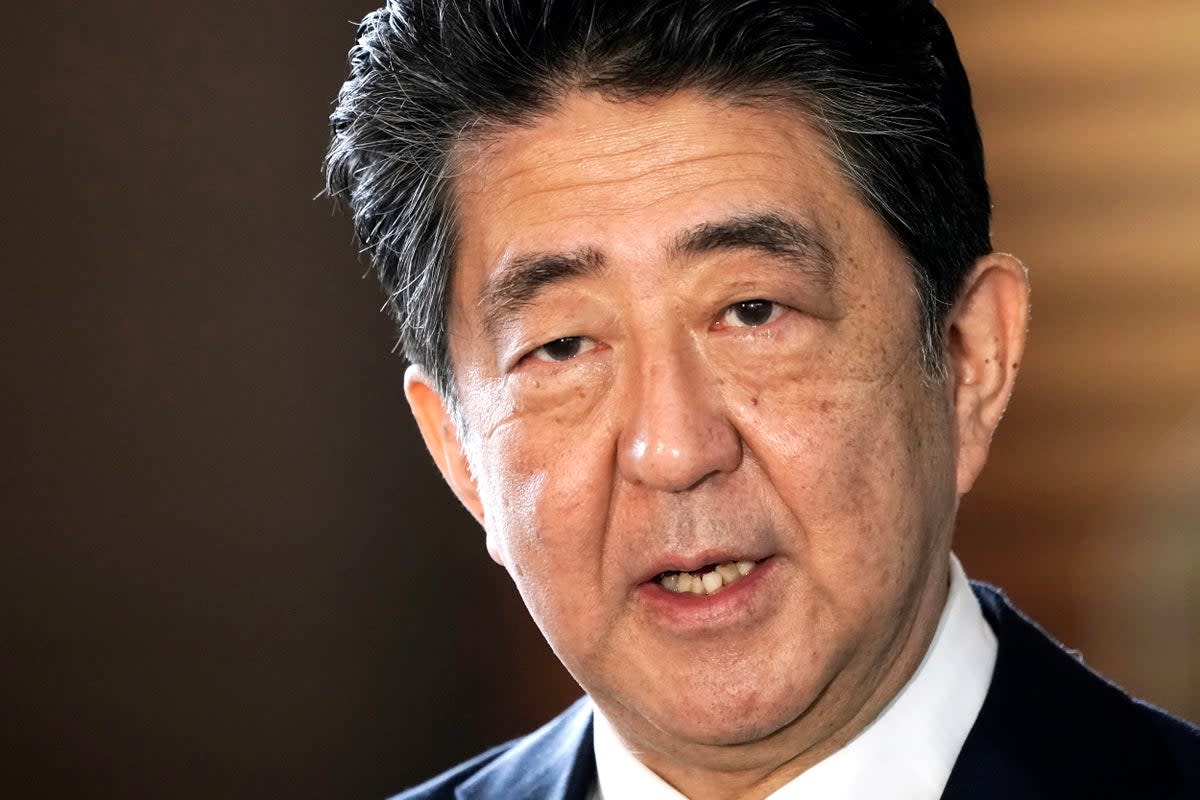Shinzo Abe: Former Japanese prime minister collapses after being shot during campaign speech

Japan’s former prime minister Shinzo Abe has been shot while delivering a campaign speech in the western city of Nara, reported Japanese media.
A gunshot was heard at around 11.30am on Friday morning as witnesses say Mr Abe collapsed in the street. A male suspect was detained from the scene, reported public service broadcaster NHK.
An NHK reporter on the spot said they heard two consecutive bangs during Mr Abe’s speech, and the broadcaster also quoted police as saying the politician was shot in the back with a shotgun.
Kyodo News reported that the former premier was not conscious and appeared to be in cardiac arrest, and other local media reports indicated that he was showing no vital signs. There has been no official confirmation of his condition, however.
“Former prime minister Abe‘s condition is not currently known, and we are checking the situation,” chief cabinet secretary Hirokazu Matsuno told reporters at an emergency news briefing at the prime minister’s office.
Footage aired by Japanese broadcasters showed Mr Abe lying on the street with several security guards running toward him. He was holding his chest when he collapsed, with his shirt smeared with blood.
Another video shows a cloud of smoke at the moment the gunshot rang out, though not the shooter themselves.
The prime minister was giving a speech ahead of Sunday’s election for the parliament’s upper house, at the time of the attack.
Authorities have detained a 42-year-old man on suspicion of attempted murder, reported Kyodo.
The attack comes as a particular shock in a country that ranks among the world’s safest and with some of the strictest gun control laws anywhere.
Some broadcasters described Mr Abe as being in “heart failure”, a term that formally means the heart cannot sufficiently pump blood and supply necessary oxygen to the rest of the body. In Japan, officials sometimes use this term in situations where victims are no longer alive but before a formal declaration of death has been made.
US ambassador to Japan Rahm Emanuel expressed sadness and shock at the shooting. "Abe-san has been an outstanding leader of Japan and unwavering ally of the US. The US government and American people are praying for the well-being of Abe-san, his family, & people of Japan," he said on Twitter.
Mr Abe, 67, stepped down as prime minister in 2020 reporting that a chronic health problem had resurfaced. He has had ulcerative colitis since he was a teenager and has said the condition was controlled with treatment.
"What worries me most now is that because of my resigning, the conservative ideals that the Abe administration raised will fade," Mr Abe subsequently wrote in the magazine Bungei Shunju.
"From now on, I want to sacrifice myself as one lawmaker to make true conservatism take root in Japan."
He told reporters at the time that it was "gut-wrenching" to leave many of his goals unfinished.
He then launched a three-pronged "Abenomics" strategy to beat persistent deflation and revive economic growth with hyper-easy monetary policy and fiscal spending, along with structural reform to cope with a fast-aging, shrinking population.
He was instrumental in winning the 2020 Olympics for Tokyo, cherishing a wish to preside over the Games and even appeared as Nintendo video game character Mario during the Olympic handover.
His ultra-nationalism riled the Koreas and China, and his push to normalise Japan’s defense posture angered many Japanese. Mr Abe failed to achieve his cherished goal of formally rewriting the US-drafted pacifist constitution because of poor public support.
Additional reporting by agencies


